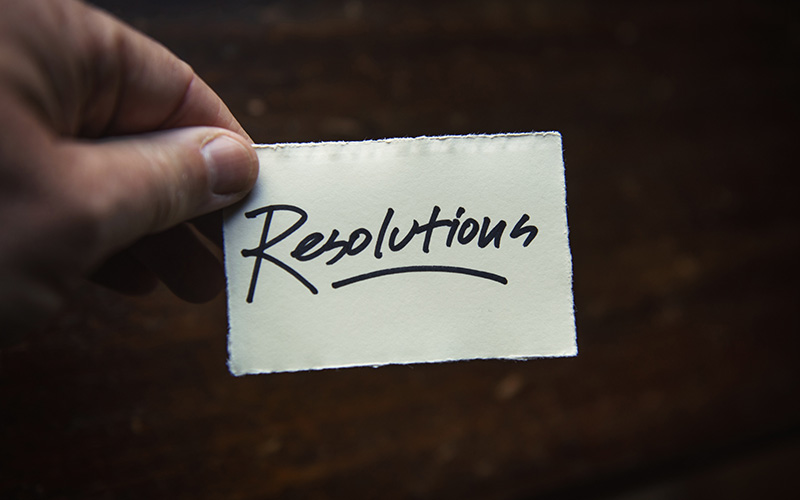How many New Year’s resolutions do you think are achieved each year across the world?
What percentage of resolutions do you think fail?
Personally, I don’t think I’ve ever stuck with one of my own New Year’s resolutions - even when I made a start on them, it wasn’t long before I lost motivation.
Why is it that so many of us struggle to achieve not only New Year’s resolutions, but other goals too?
We’ll often come up with excuses, like we don’t have the time or money, it’s too hard, our priorities have changed, or we’ve just ‘lost motivation’. But really, there’s more going on in the brain which, if we understand, we can use to our advantage.

Habits – the good and the bad
Habits are understood to be repetitive actions or behaviours that we do subconsciously.
If I asked you to name a habit, you may think of nail biting, smoking, alcohol consumption, ordering takeaway… all bad habits, right?
But habits are much more than just these – habits also include our daily routines, how we think, what we say, and how we behave on a greater scale.
Studies actually show that between 40-95% of our behaviours are controlled by habit*, and this is one reason why we struggle to make changes in our lives and ultimately achieve our goals.
Another reason is because many of our habits are things we enjoy doing, and when we do something we enjoy, dopamine (a reward and motivator chemical) is released into the body. This dopamine hit is addictive, and is what makes us crave the things we enjoy.
Seeing as our behaviours and actions are so greatly controlled by habit, the most effective way of getting rid of bad habits - and ultimately to achieve new goals - is to form new habits.
The process of forming new habits
Forming new habits takes time and patience, as studies show that it can take on average 66 days for a new habit to be formed, or anywhere up to 250 days** – but it really depends on the person and the habit!
If you are trying to change a bad habit, the first step is to develop awareness around the habit.
Are there certain times, places, people or other things that trigger the craving for that habit? Once you are aware of these triggers, you can take steps to avoid them, or you can pre-empt the trigger and try replacing the bad habit with a good one.
If potato chips are your go-to snack when there’s no other easy to eat food in the house, buy some healthy snacks and fruit when you go to the supermarket. You might also make sure that these healthy snacks are easily accessible in the place / area of the house where you most often crave to eat potato chips, and might also place the potato chips in a difficult place to reach (like at the top back of the cupboard)!
If you are not trying to get rid of a bad habit but just want to achieve a new goal – such as exercising or reading regularly – the important thing to remember is repetition!
If you are struggling to ‘stay motivated’ and repeat these new actions that you want to form into habits, focus on how you can turn them into something you enjoy, utilising the dopamine response in your body.
If you enjoy socialising and want to form a consistent exercise routine, organise regular exercise outings with a friend or family member.
If you want to read for a specific time each day or week, choose book genres or topics that you know you’ll enjoy, or read in an enjoyable environment – such as outdoors, sitting next to a loved one or your pet, or snuggled up in bed.
When we turn our actions into habits, we no longer need to rely so heavily on short-term willpower and motivation – habits will stay for the long haul.
Liz Gellel | Communications Coordinator
Sources:
Read more: